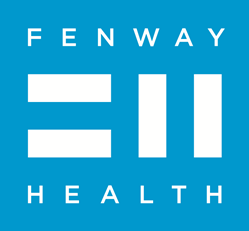
…without [sexual orientation and gender identity] information, we can’t design effective outreach strategies around vaccines and COVID-19 testing.
BOSTON (PRWEB)
August 20, 2021
An editorial published in the American Journal of Public Health calls on the federal government, the National COVID Cohort Collaborative, and COVID-NET (a network of 100 large hospitals) to require the collection and reporting of sexual orientation and gender identity (SOGI) data, including intersex status data, in COVID-19 care, testing, and vaccination.
“Still in the Dark Regarding the Public Health Impact of COVID-19 on Sexual and Gender Minorities” asserts that public health officials and clinicians know very little about how COVID-19 is affecting sexual and gender minority (SGM) people because very little data about SGM people is collected in COVID-19 testing, care, and vaccination.
“We have every reason to believe that sexual and gender minority people are disproportionately affected by the COVID-19 pandemic relative to their overall share of the population,” said editorial author Sean Cahill, PhD, Director of Health Policy Research at The Fenway Institute at Fenway Health. “But without that information, we can’t design effective outreach strategies around vaccines and COVID-19 testing.”
SGM people may be at an elevated risk of COVID-19 infection because many reside in urban areas, work in frontline occupations such as retail and food services, and experience rates of poverty that are greater than the general population. All three factors have been shown to result in higher rates of COVID-19 infection in other minoritized populations, such as Black, Indigenous, and Hispanic people. Because of higher rates of risk factors for complications from COVID-19, such as cardiovascular disease and diabetes, SGM people may be more likely to develop complications and require hospitalization.
Analysis of preliminary polling data from an Axios-Ipsos survey conducted in the fall of 2020 found that LGBT people of color were more likely to test positive for COVID-19 than straight, cisgender people of color, and that LGBT people of color were twice as likely to test positive for COVID-19 than LGBT White people.
Only California, Nevada, Oregon, Pennsylvania, Rhode Island, and the District of Columbia collect COVID-19 testing data. None report the data publicly. California reports the share of SOGI data it has for individuals who test positive for COVID-19 and for those who die of the disease, but it does not report prevalence data, which is needed to understand population health and design targeted, culturally competent interventions.
From the beginning of the pandemic, health advocates and LGBTQIA+ community advocates have been urging federal officials to require the collection of SOGI data. They have requested that COVID-NET, a network of 100 large hospitals throughout the country, collect and report SOGI data in COVID-19 testing, care, and vaccination. And they have asked the National COVID Cohort Collaborative to include SOGI data in its clinical data dictionary.
“Last month, a cluster of nearly 1,000 COVID-19 infections were traced to July Fourth weekend celebrations in Provincetown. Are sexual and gender minority people more vulnerable to COVID-19 than straight, cisgender people? Are they more likely to be hospitalized with complications?,” Cahill asked. “There are many reasons to believe that the answers to both questions are yes. But we don’t know for sure because we aren’t collecting the basic information we need to understand how the pandemic is affecting SGM people. It is baffling, and we need our state and federal governments to act now.”
“Still in the Dark Regarding the Public Health Impact of COVID-19 on Sexual and Gender Minorities” is available online here.
Share article on social media or email:

